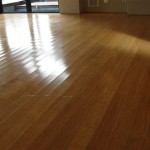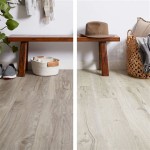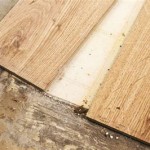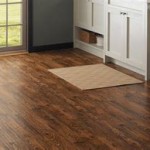The Benefits and Drawbacks of Installing Tigerwood Flooring
Tigerwood, also known as Brazilian Ipe, is a highly sought-after hardwood flooring option due to its exceptional durability, rich color, and unique grain patterns. However, like any flooring material, tigerwood has both advantages and disadvantages. This article will explore the benefits and drawbacks of installing tigerwood flooring to help you make an informed decision about whether it's the right choice for your needs.
Benefits of Tigerwood Flooring
- Exceptional Durability: Tigerwood is one of the hardest and most durable wood species available, making it highly resistant to scratches, dents, and wear. It is suitable for high-traffic areas and commercial spaces where durability is paramount.
- Rich Color and Grain: Tigerwood's signature feature is its striking color and grain pattern. The heartwood ranges from deep reddish-brown to golden brown, with dark, contrasting streaks. This makes tigerwood an eye-catching choice that adds character and warmth to any room.
- Moisture Resistance: Tigerwood is naturally moisture-resistant, making it suitable for areas with higher humidity levels. However, it's still important to acclimate the flooring properly before installation and to protect it from excessive water exposure.
- Sustainable and Eco-Friendly: Tigerwood is a sustainably harvested wood species that is managed responsibly by the Brazilian government. By choosing tigerwood flooring, you can support sustainable forestry practices and protect the environment.
Drawbacks of Tigerwood Flooring
- High Cost: Tigerwood is a premium hardwood flooring option and comes with a higher price tag compared to other flooring materials. The cost of installation can also be significant due to the wood's hardness and the need for specialized tools.
- Susceptibility to UV Light: Tigerwood can fade over time when exposed to direct sunlight. It is important to protect the flooring with UV-blocking curtains or window treatments to prevent discoloration.
- Difficulty Installing: Due to its hardness, tigerwood can be challenging to install. It requires specialized equipment and experienced installers to ensure proper installation and avoid damage to the wood.
- Allergic Reactions: Tigerwood contains a natural irritant called ipe dust that can cause respiratory and skin irritation for some individuals. Proper ventilation and protective gear are necessary during installation and sanding.
Conclusion
Tigerwood flooring offers an array of benefits, including exceptional durability, rich color, and moisture resistance. However, it also has some drawbacks to consider, such as its high cost, susceptibility to UV light, and installation difficulties. Ultimately, the decision of whether to install tigerwood flooring depends on your individual needs, budget, and lifestyle. If you value durability, aesthetics, and sustainability, tigerwood may be an excellent choice for your home or business. However, if you're on a tight budget or concerned about maintenance and installation complexity, you may want to consider alternative flooring options.

Tigerwood Flooring

Tigerwood Flooring Guide S

Tigerwood Goncalo Alves Muiracatiara Brazilian Koa Solid Flooring Advantage Lumber

Tigerwood Decking Deck Installation Hardwood

Tigerwood Flooring Tiger Wood

Tigerwood Prefinished Engineered Hardwood Flooring Floor

Prefinished Brazilian Tigerwood Flooring Koa By Bayou Rustic

Tigerwood Prefinished Solid Hardwood Floors Unique Wood

Tigerwood Flooring

Tigerwood Prefinished Solid Hardwood Floors Unique Wood
See Also







